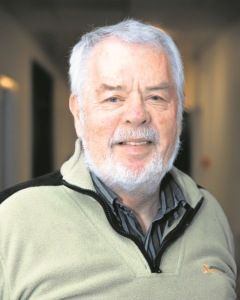Opinion
This Week’s Editorial: A most unwelcome resistance
Ejvind Sandal
This article is more than 9 years old.
A new political party has introduced itself to the public.
Could change everything
Like in many other nations, it seems that a radical anti-immigrant/refugee movement is now emerging. It is reported that more than 10,000 signatures have already endorsed its drive to take part in the next general election. Although it will take more than double that number to reach that objective, it is not impossible bearing in mind that the next election may be years away.
The party’s platform is rather simple: Denmark for the Danes. Asylum-seekers should be rejected and their applications not processed. Denmark should renege on its pledge to receive refugees in peril and protect, shelter and feed them. Armed guards should be posted at the border gates to protect the country from immigrants of all sorts. Dansk Folkeparti is accused of being too lenient.
Most of its followers will be too young to remember the thousands of Danes who fled to Sweden during WWII where they were received with open arms. The Europe we know will be changed if they succeed – here or elsewhere. Like in that war, this is a resistance, but not a force of good.
Working for their keep
So what is happening in the real world?
The three-party agreement of March this year, which has made it easier for immigrants and refugees to find their way into the Danish labour market, is slowly starting to work. Some obstacles remain, like language, with many employers demanding that applicants should first learn Danish. But that is not easy and also unnecessary. Practically all Danes understand English and most refugees do so too.
Integration is a two-way process, of course, and the immigrants and refugees will need to work for their supper. If they have the impression they will be handed everything on a plate – easy jobs, free education, family reunification and money – then they are in for a surprise and might run screaming out of the factory when they realise they actually have to work.
Help from within
But others have surprised their employers in a positive way by being flexible and disciplined, and they are accordingly being used as recruitment agents, thus further lowering the barriers.
The same could be said about language. Everybody makes an effort to communicate in Danish, but turn to English when needed. To be useful, 100 common words is a good start as it shows that integration is possible but not self-propelling.
The Red Cross reports a record number of volunteers are enlisting to coach, teach, follow and socialise with the refugees.
Integration is taking hold. And we hope that its movement will outpace the resistance.

About
Ejvind Sandal
Copenhagen Post editor-in-chief Ejvind Sandal has never been afraid to voice his opinion. In 1997 he was fired after a ten-year stint as the chief executive of Politiken for daring to suggest the newspaper merged with Jyllands-Posten. He then joined the J-P board in 2001, finally departing in 2003, the very year it merged with Politiken. He is also a former chairman of the football club Brøndby IF (2000-05) where he memorably refused to give Michael Laudrup a new contract prior to his hasty departure. A practising lawyer until 2014, Sandal is also the former chairman of Vestas Wind Systems and Axcel Industriinvestor. He has been the owner of the Copenhagen Post since 2000.










































